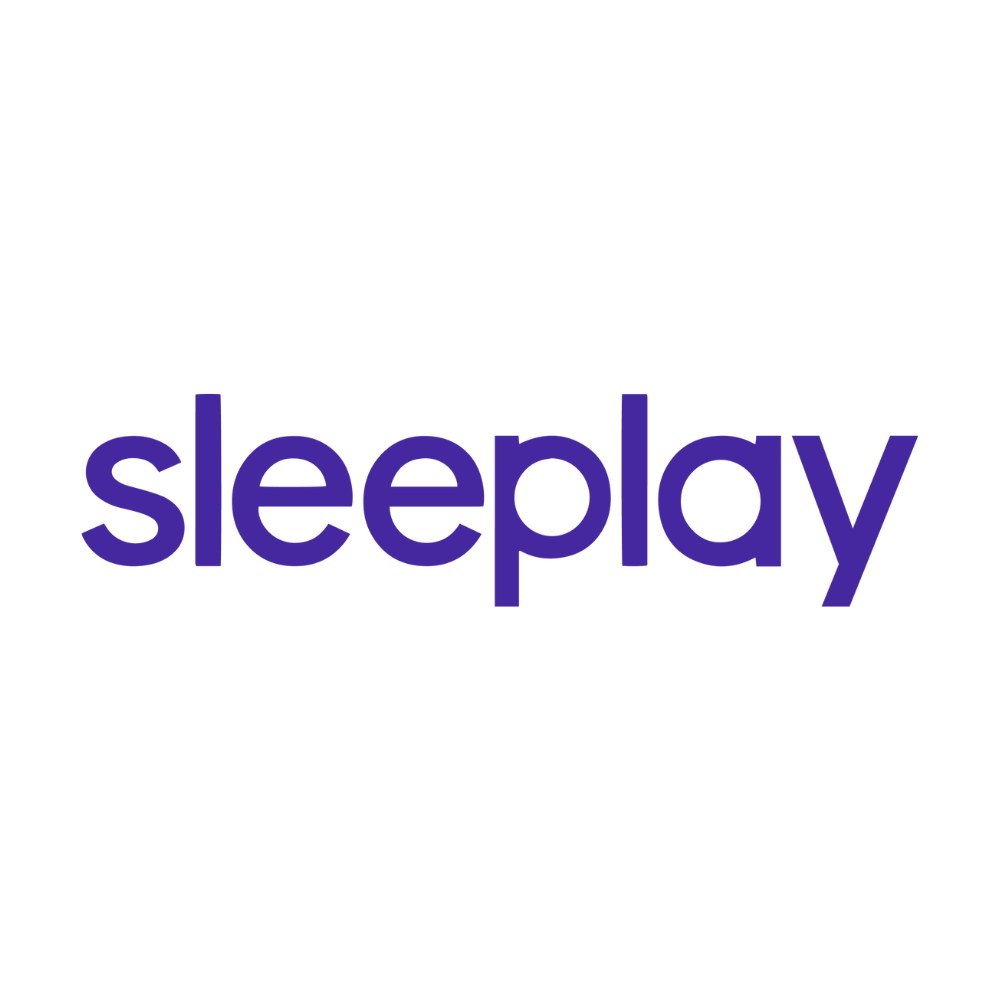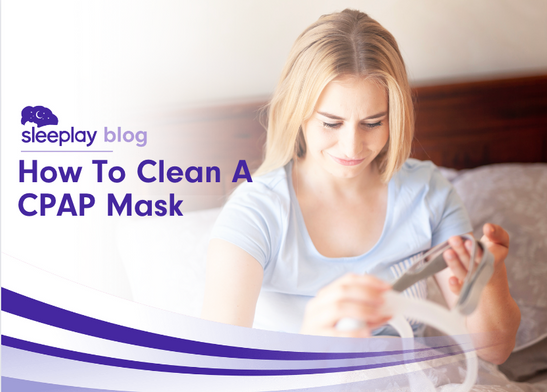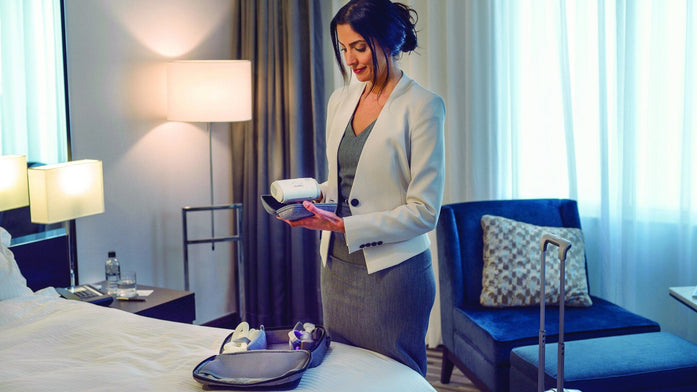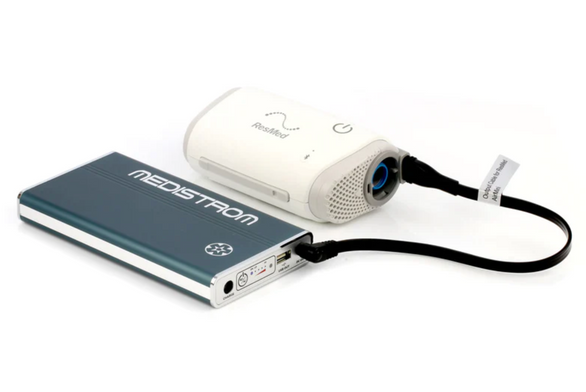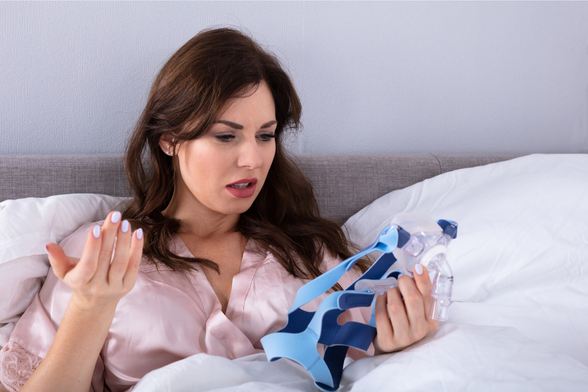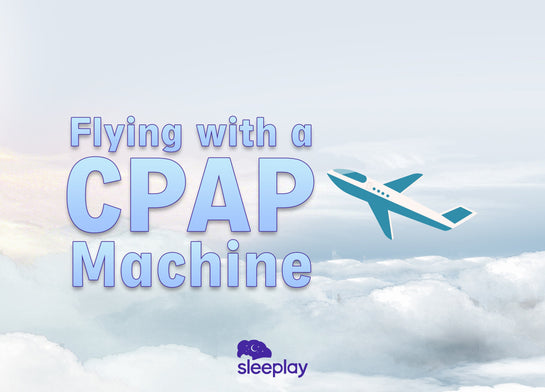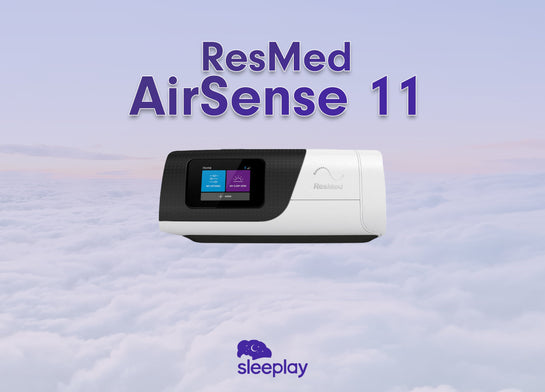Everything You Need to Know About ASV Machines
Sleep apnea affects millions of people worldwide, disrupting their sleep and worsening their overall health. ASV machines have emerged as a significant advancement to treat this condition, especially for people with uncommon types of sleep apnea.
Continue reading to learn more about these devices and whether you can benefit from using them.
What Are ASV Machines?
Adaptive servo-ventilation (ASV) machines are non-invasive positive airway pressure (PAP) devices designed to treat sleep apnea, especially when conventional treatments such as continuous positive airway pressure (CPAP) machines aren’t effective. They stabilize the user’s breathing pattern throughout the night, preventing hypopnea or apnea episodes or breathing pauses that can disrupt sleep.
These machines have three main components:
•Face Mask: Can be worn over the nose or the nose and mouth and directly delivers pressurized air into the user’s upper airway.
•The Machine: Includes the motor that generates the pressurized air.
•Flexible Hose: Connects the face mask to the machine, allowing air transfer.
How To Use An ASV Machine
If you’re new to using an ASV machine, follow these steps:
1. Before going to bed, fit the mask comfortably over your nose and mouth or just your nose, depending on the type of mask you use, to prevent air leaks and maintain comfort throughout your sleep.
2. Turn on the machine to monitor your breathing as you sleep.
3. Have a good night’s sleep!
How Do ASV Machines Work?
The core functionality of ASV machines lies in their ability to dynamically adjust the air pressure delivered to the user through a customized algorithm. By monitoring the patient’s breathing patterns throughout the night, the machine can detect when breathing slows or becomes irregular. In response, it increases the air pressure to normalize the person’s breathing.

Once normal breathing is resumed, the PAP machine gradually reduces the air pressure to the pre-established baseline level, ensuring a comfortable and uninterrupted sleep experience.
Difference Between ASV Machines, CPAP Machines and BiPAP Machines
Understanding the distinction between various PAP devices is crucial for selecting the appropriate treatment:
Continuous Positive Airway Pressure (CPAP) Machines
Deliver a fixed and constant air pressure level throughout the night. Some CPAP machines, known as APAP or Auto-adjusting CPAP , can adjust the air pressure within a predetermined range based on the person’s breathing.
Bilevel Positive Airway Pressure ( BiPAP or BPAP ) Machines
Provide two levels of pressurized air: a high pressure for inhalation and a lower pressure for exhalation. This dual-setting approach can be more comfortable for people who struggle with the constant pressure provided by CPAP therapy.
ASV Machine
ASV devices have advanced technology that finely adjusts pressure settings in real-time according to the patient’s breathing pattern. This personalized approach can lead to a more natural and comfortable sleep experience. However, ASV machines often are the most expensive option when compared to other PAP therapy options.
If you’re considering an ASV machine for your sleep apnea treatment, consult with your primary healthcare provider or sleep medicine specialist to determine if it’s the right option for your specific needs.
Who Can and Can’t Use ASV Therapy
ASV machines are a form of treatment for different types of sleep apnea syndromes and other related breathing disorders. While they can be used for certain cases of obstructive sleep apnea (OSA), they’re particularly beneficial for other breathing problems. However, ASV therapy isn’t suitable for everyone.

Who Can Use ASV Machines
Central Sleep Apnea
Central Sleep Apnea (CSA) is characterizeed by a lack of drive to breathe during sleep, leading to periodic pauses in breathing. ASV machines are a great treatment option for CSA because they can compensate for irregular breathing patterns by providing pressure support when the natural respiratory drive is absent.
Complex Sleep Apnea
Complex sleep apnea is a type of breathing disorder in which CSA appears in a patient with OSA who just started their CPAP treatment. It can temporarily disappear after 4-8 weeks of CPAP treatment. However, patients with this condition benefit from ASV machines, as they can adapt to their varying breathing patterns.
Mixed Sleep Apnea
Mixed sleep apnea combines the characteristics of OSA and CSA. ASV machines offer an effective treatment by dynamically adjusting air pressure to address both components of this disorder.
Cheyne-Stokes Respiration
Cheyne-Stokes respirations are a pattern of cyclical breathing associated with heart failure, strokes, and high altitude. ASV machines are designed to normalize this breathing pattern by increasing air pressure during periods of shallow breathing and decreasing it during hyperventilation phases.
Treatment-Resistant Obstructive Sleep Apnea
In OSA, there’s an obstruction for airflow in the upper airway during sleep, leading to snoring and pauses or slowing in breathing. People who have several sleep apnea episodes per night and a high Apnea-Hypopnea Index (AHI) are more likely to not respond well to conventional CPAP therapy. ASV devices are a valuable treatment option for patients with treatment-resistant OSA.
Opioid -Induced Sleep Apnea
Opioid-induced sleep apnea can occur in people who chronically use opioids. This condition can lead to complex sleep-related breathing disorders. This type of sleep apnea has shown to be particularly resistant to CPAP therapy in peer-reviewed studies. ASV therapy may be the best option in these cases.

Who Can’t Use ASV Machines
Chronic Congestive Heart Failure
Patients with symptomatic chronic heart failure, especially those with reduced ejection fraction , should avoid ASV therapy. Studies have shown that ASV therapy may increase mortality in these patients.
Chronic Obstructive Pulmonary Disease
Patients with chronic obstructive pulmonary disease (COPD) often have difficulty exhaling, and the pressure changes from ASV machines can exacerbate this issue, making their condition worse.
Chronic Hypoventilation
Hypoventilation usually needs to be treated by addressing its underlying cause. So, these individuals may not respond very well to ASV therapy.
Although ASV machines are versatile tools for managing various forms of sleep apnea and other breathing-related sleep disorders, they aren’t a one-size-fits-all solution. Patients must seek medical advice to determine if ASV treatment is appropriate for them.
What Are The Advantages of Using an ASV Machine?
ASV therapy can be a game-changer for people struggling with certain types of sleep apnea. These devices offer a wide range of benefits that can significantly improve their sleep quality and overall health. Some of these are:
Decreased Apnea Episodes
ASV machines are designed to provide tailored support to prevent apnea episodes. By continuously adapting to the person’s breathing, ASV machines can preemptively adjust air pressure to ensure that breathing remains stable while you sleep. This results in a significant reduction in the number of apnea episodes experienced by the user.

Decreased Excessive Daytime Sleepiness
One of the most common symptoms of sleep apnea is excessive daytime sleepiness, which can affect a person’s ability to function during the day. An ASV machine can help you have more restful nights and less daytime fatigue, making you feel more alert and energetic during the day.
Improved Oxygen Saturation
Sleep apnea can lead to periods of low oxygen levels during the night. ASV machines help maintain a stable breathing pattern, ensuring oxygen levels remain within a normal range. Improved oxygen saturation during sleep can have a positive impact on overall health, reducing the risk of complications associated with sleep apnea.
Enhanced Sleep Quality
The personalized pressure adjustments of ASV machines contribute to a smoother, more natural breathing rhythm, which can enhance overall sleep quality and help you wake up feeling refreshed and rejuvenated.
Better Compliance Rates
Due to the comfort and effectiveness of ASV therapy, some patients tend to adhere better to their treatment plans than to other forms of PAP therapy. This improved compliance is essential for the long-term management of sleep apnea.
Versatility for Different Types of Sleep Apnea
ASV machines are very versatile and can treat various types of sleep apnea. This makes them a great option for people who haven’t improved with other types of PAP devices.
Side Effects of ASV Machines
Like any medical treatment, ASV machines have some potential side effects. Fortunately, these side effects are generally minor and manageable. These are:
Skin Irritation
The contact between the skin and the face mask can sometimes lead to irritation. This is often due to the mask’s fit or material. You can prevent this by ensuring a proper fit and considering masks made with softer and hypoallergenic materials.
Dry Mouth
ASV therapy can cause dryness in the mouth upon waking up, especially if you breathe through your mouth when you’re asleep. You can solve this by using an ASV machine with a built-in humidifier.
Aerophagia (Swallowing Air)
Some people may swallow air during PAP therapy, which can lead to bloating and discomfort. If you’re experiencing this, you should adjust your pressure settings and make sure your mask fits properly.
Nasal Congestion
The pressurized airflow can cause you to have a stuffy nose, which can be uncomfortable and lead to mouth breathing. Adding moisture to the air with a humidifier can prevent this issue.
Claustrophobia
Wearing a mask during sleep can be challenging for people with claustrophobia. They may benefit from graduate acclimatization to wearing the mask by sitting for short periods of time to ease their discomfort.

FAQs
Do You Need a Prescription for an ASV Machine ?
Yes, ASV machines, like other PAP devices, require a prescription . To determine if ASV devices are right for you, you need to take a sleep apnea test and consult a sleep medicine specialist. Sleeplay offers a home sleep test that you can take at home, avoiding long commutes and overnight stays at the hospital or sleep center.
How Much Do ASV Machines Cost?
ASV machines are among the more expensive types of PAP devices, costing up to $3,000. However, many health insurance plans may cover part or all of the cost of an ASV machine.
What’s the Best ASV Device ?
While the best ASV device for you will depend on your individual needs, the ResMed AirCurve 11 ASV with HumidAir and the ResMed AirCurve 10 ASV BiPAP with HumidAir Heated Humidifier are highly regarded options among experts and users.
Does Medicare Cover ASV Machines ?
As ASV machines fall under the category of Durable Medical Equipment (DME), Medicare Part B may cover a portion of the cost. It’s important to check your Medicare plan for specific coverage details and requirements.
ASV devices represent an advancement in the treatment of complex sleep-related breathing disorders. Their tailored therapeutic approach can offer better results to those who haven’t found success with traditional PAP devices.
Want to start treating your sleep apnea but don’t know where to start? At Sleeplay we can help you choose the best PAP machine.
Join the conversation!, login and comment.
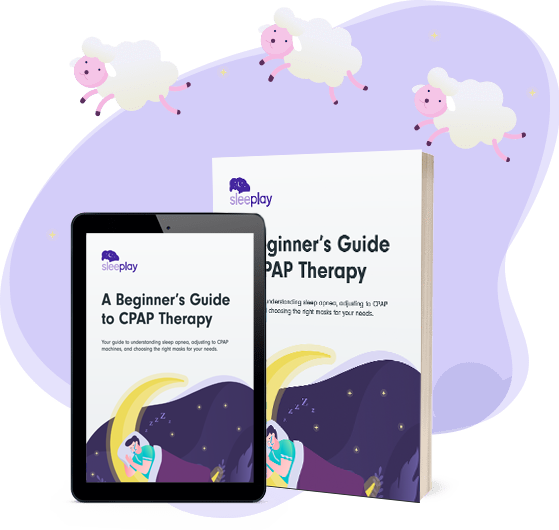
Get your guide to understanding sleep apnea, adjusting to CPAP machines, and choosing the right masks for your needs.

